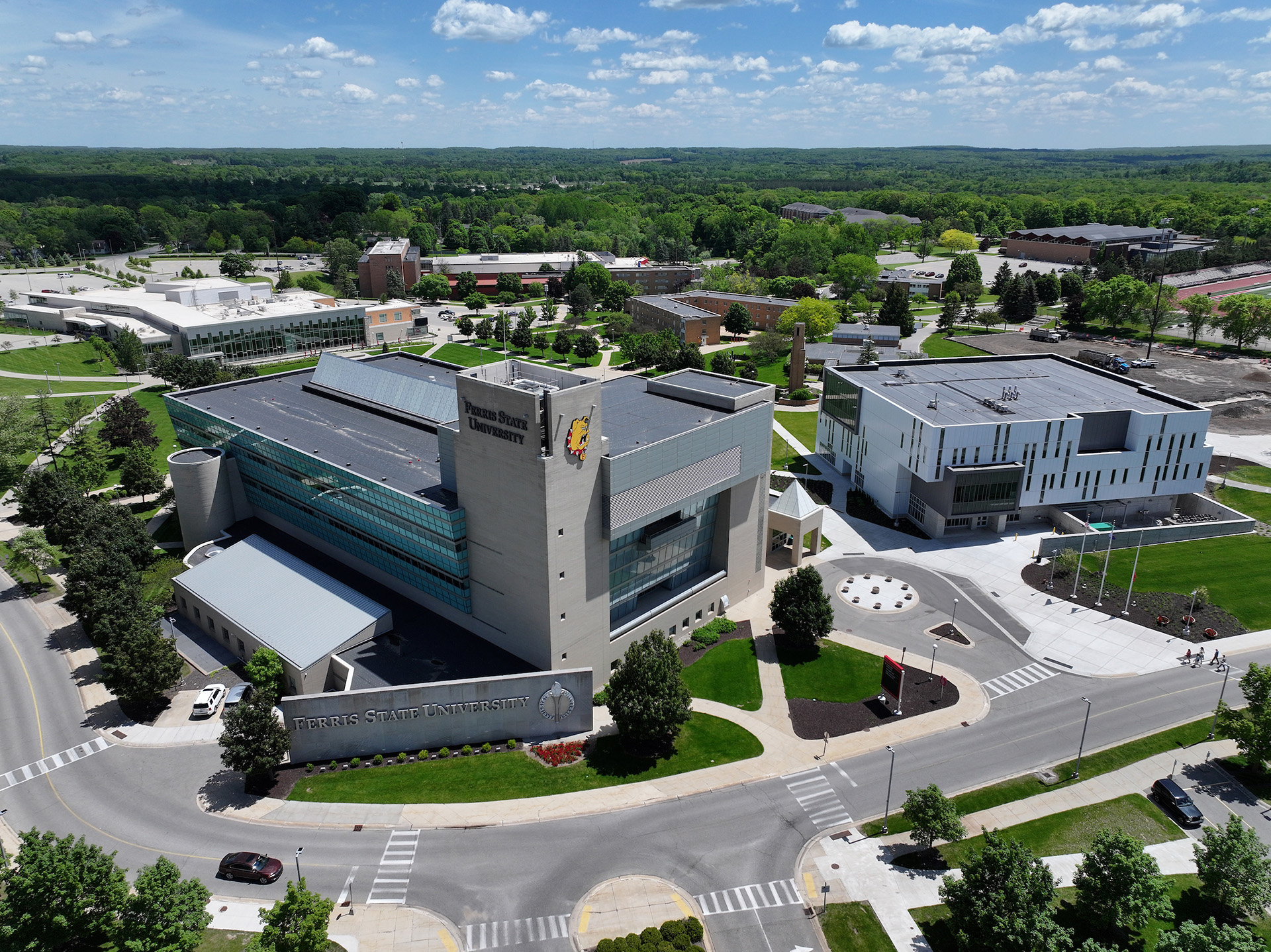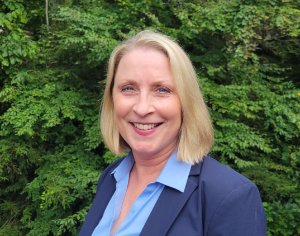July 2, 2024
Ferris State University Doctorate of Community College students look to fill in-demand higher education roles

Eleven collegiate professionals from diverse backgrounds, inside and outside the classroom, are enrolled in Ferris State University’s Doctorate in Community College Leadership program, building skills to meet a growing need for higher education leaders.

Wendy Patriquin
DCCL Director Wendy Patriquin said the three-year program has a slight increase from the latest cohort, which started in May 2023.
“With faculty members, deans and vice presidents, there is a good mix of experience, from academics to the financial area of their operations, which should bring a great range of perspectives to their discussions and group work,” Patriquin said.
The Ferris Doctor of Education program launched in 2010, created for leaders of mission-driven, 21st-century community colleges. Courses are taught by experienced college leaders, including current and recent community college presidents, vice presidents, and deans.
This program is designed to prepare leaders for the changing environments in education. This inquiry-based, problem-solving, action-oriented approach is designed to develop the essential skills that will lead to success, regardless of the level from which graduates will lead.
Topics include finance, technology, resource development, marketing, teaching and learning, policy, and leadership. The courses are mixed-delivery, with both online and in-person components. A key feature of the program is that the dissertation may take any of four forms and is integrated throughout the three-year program, with a goal of having individuals complete the dissertation by the end of the three years of the program.
Higher education administrators are in demand, according to the U.S. Bureau of Labor Statistics. Employment of postsecondary education administrators is projected to grow 4 percent from 2022 to 2032, about as fast as the average for all occupations.
Community colleges are playing an increasingly important role in Michigan, helping older students gain additional skills to advance in their careers or providing a pathway for people who previously struggled in high school or college to gain a degree.
About 280,500 people attended Michigan community colleges in 2023, according to the Michigan Center for Educational Performance and Information. That’s about a 3.4 percent increase from the year before.
About 15,300 openings for postsecondary education administrators are projected each year, on average, over the decade.
Patriquin said the latest cohort includes representatives from four Michigan community colleges, with leaders from community colleges from Illinois, Indiana and Ohio.
Cohort members gathered for sessions at the start of summer, fall and spring semesters before completing their coursework online.
“There are seven-and-a-half week segments per subject, so students take up one course at a time in an intense presentation of the subject matter,” Patriquin said. “By completing one course, then the other in a semester, our students can be responsive in their work roles, pursue our doctorate, and find some free time throughout the year as needed.”
Patriquin praised the experienced DCCL faculty, a group of adjuncts from various backgrounds.
“Their experiences and leadership perspectives build on the theory our students take up in their coursework,” she said. “We feel this affords an interesting mix of elements in the doctoral program.”
Patriquin said Ferris State’s fourth DCCL cohort at Lone Star College, near Houston, Texas, will begin its work in January 2025.

